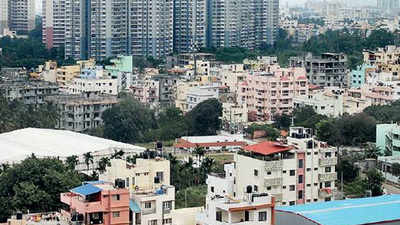The Times of India 20.05.2010
Explain hike in mobile tower licence fee, HC tells MCD
TNN, May 20, 2010, 01.08am IST
NEW DELHI: Extending the interim stay on sealing of mobile towers by another week, the Delhi high court on Wednesday sought an explanation from the MCD on the hike in license fees from Rs one lakh to Rs five lakh.
The MCD charges this amount for allowing mobile operators to install towers. Justice Kailash Gambhir asked the Municipal Corporation of Delhi (MCD) to file its reply within two days explaining the rationale behind increasing the fee.
“What is the rationality behind taking such a decision? What prevailed in the minds of the MCD people while raising the fee?,” HC asked during the hearing and asked the corporation to respond. He also sought to know the grounds on which the licence fee was hiked and whether any proposal was passed in the MCD house on the issue.
HC had on May 13 restrained the civic body from sealing illegal mobile phone towers in the capital after the mobile operators approached it challenging the decision of the MCD to hike the charges and introduce new guidelines.
Arguing on behalf of the cellular operators association, senior advocate Abhishek Manu Singhvi said: “Hike by the MCD is totally arbitrary.” Singhvi contended that since the licence of the cellular operators is valid for 20 years, the licence fee for the towers should also be valid for the same period.
“The towers’ licence fee earlier was Rs 1 lakh for 20 years which has now been increased to Rs 5 lakh for a period of 5 years. When the MCD increased the fees, did it make any arrangement to increase the facilities attached to the towers,” Singhvi argued.
Senior advocate Parag Tripathi, appearing for MCD, countered, arguing “all over the world same norms are being followed with respect to the mobile phone towers. Our sole criteria for sealing these towers is health hazard.”
Singhvi objected to MCD’s new guideline that a no objection certificate is required from every owner of the building before installation of a tower and said: “When they are hiking the fees, then such type of clauses should not be included.”
On May 13, the high court stayed the sealing of illegal towers and asked the MCD and the cellular operators association to resolve the issue amicably. There are 5,364 mobile phone towers in MCD’s jurisdiction. Of these, as many as 2,952 have been declared illegal for having come up without the civic agency’s authorization.
The MCD sealed about 300 towers in the past few months. But 41 were again made operational after the phone companies completed the formalities. According to the civic agency, mobile operators who have erected towers illegally were given one month’s time to get them regularized. The deadline expired in the first week of May.
The MCD charges this amount for allowing mobile operators to install towers. Justice Kailash Gambhir asked the Municipal Corporation of Delhi (MCD) to file its reply within two days explaining the rationale behind increasing the fee.
“What is the rationality behind taking such a decision? What prevailed in the minds of the MCD people while raising the fee?,” HC asked during the hearing and asked the corporation to respond. He also sought to know the grounds on which the licence fee was hiked and whether any proposal was passed in the MCD house on the issue.
HC had on May 13 restrained the civic body from sealing illegal mobile phone towers in the capital after the mobile operators approached it challenging the decision of the MCD to hike the charges and introduce new guidelines.
Arguing on behalf of the cellular operators association, senior advocate Abhishek Manu Singhvi said: “Hike by the MCD is totally arbitrary.” Singhvi contended that since the licence of the cellular operators is valid for 20 years, the licence fee for the towers should also be valid for the same period.
“The towers’ licence fee earlier was Rs 1 lakh for 20 years which has now been increased to Rs 5 lakh for a period of 5 years. When the MCD increased the fees, did it make any arrangement to increase the facilities attached to the towers,” Singhvi argued.
Senior advocate Parag Tripathi, appearing for MCD, countered, arguing “all over the world same norms are being followed with respect to the mobile phone towers. Our sole criteria for sealing these towers is health hazard.”
Singhvi objected to MCD’s new guideline that a no objection certificate is required from every owner of the building before installation of a tower and said: “When they are hiking the fees, then such type of clauses should not be included.”
On May 13, the high court stayed the sealing of illegal towers and asked the MCD and the cellular operators association to resolve the issue amicably. There are 5,364 mobile phone towers in MCD’s jurisdiction. Of these, as many as 2,952 have been declared illegal for having come up without the civic agency’s authorization.
The MCD sealed about 300 towers in the past few months. But 41 were again made operational after the phone companies completed the formalities. According to the civic agency, mobile operators who have erected towers illegally were given one month’s time to get them regularized. The deadline expired in the first week of May.

